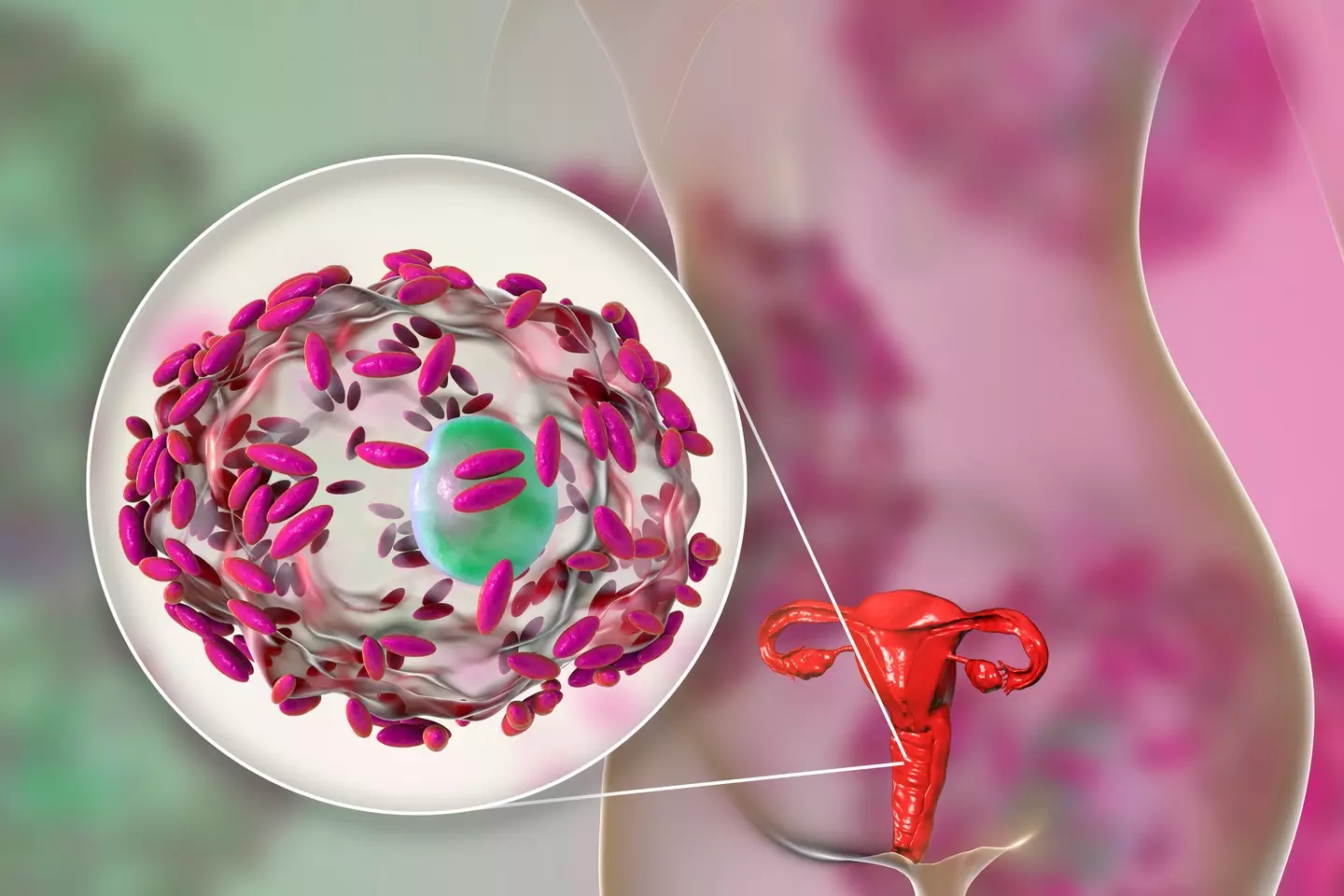
Scientists have shared findings from a new study published just this week that reveals a common infection in women could actually be a sexually transmitted infection (STI).
According to the Australian researchers, the infection in question, which affects as many as nearly a third of women worldwide and can lead to infertility, premature births and newborn deaths, is spread during intercourse and fits the definition of an STI.
The study, which was published in the New England Journal of Medicine on Wednesday (March 5), suggests that male-partner treatment 'may increase the likelihood of cure'.

Advert
The infection is none other than bacterial vaginosis - or BV for short.
What causes BV?
The NHS explains that BV is a common cause of 'unusual' vaginal discharge.
The health body also adds that it 'is not a sexually transmitted infection (STI), but it can increase your risk of getting an STI such as chlamydia' - something which the Aussie study states otherwise.
It's caused by a change in the natural balance of bacteria in your vagina and, while what causes this to happen is not fully known, you're reportedly more likely to get BV if:
- you're sexually active (but women who have not had sex can also get bacterial vaginosis)
- you have had a change of partner
- you have an IUD (contraception device)
- you use perfumed products in or around your vagina
"You're more likely to get an STI if you have bacterial vaginosis. This may be because it makes your vagina less acidic and reduces your natural defences against infection," the NHS adds.

What are the symptoms of BV?
Symptoms of BV include:
- an unusual vaginal discharge that has a strong fishy smell, particularly after sex
- a change to the colour and consistency of your discharge, such as becoming greyish-white and thin and watery
The NHS also states that as many as 'half of women' who have BV don't actually have any symptoms, adding that it doesn't usually cause any soreness or itching.
What is the treatment for BV?
If you think you've got BV, the NHS assures that while the condition is 'not usually serious', you may need to be treated with antibiotic gels or tablets.
If you have a same-sex partner, they may also need treatment.
Additionally, it's also important to seek treatment if you're pregnant, as there's a small chance it can cause complications with pregnancy.
How can you prevent BV?
Again, the NHS outlines several things you can do to 'help relieve symptoms and prevent bacterial vaginosis returning'.
These include use water and plain soap to wash your genital area as well as having showers instead of baths.
Additionally, the official health website advises against using perfumed soaps, bubble bath, shampoo or shower gel in the bath as well as vaginal deodorants, washes or douches.
The NHS also suggests not putting any antiseptic liquids in the bath, using strong detergents to wash your underwear and even smoking.

What does this new study say?
Well, the trial, run by Monash University and Alfred Health researchers at the Melbourne Sexual Health Centre, saw the analysis of 164 couples with BV.
Half of the men in the group received an oral antibiotic and a topical antibiotic cream to apply to the skin for one week, while the control group of men were given no treatment.
Researchers found that they were able to achieve higher cure rates by treating BV as an STI, with both sexual partners - rather than just the woman - given antibiotics.
The results were so illuminating that doctors stopped the study early when it became clear that the chances of BV recurrence were dramatically halved using such an approach.
One of the study's lead researchers, Prof Catriona Bradshaw, explained: "Our trial has shown that reinfection from partners is causing a lot of the BV recurrence women experience, and provides evidence that BV is in fact an STI.
"Part of the difficulty in establishing whether BV is sexually transmitted has been that we still don't know precisely which bacteria are the cause, but advances in genomic sequencing are helping us close in on that mystery."
The findings have been so significant that the sexual health clinic has now changed its clinical practice to routinely treat both partners instead of just the woman.
The British Association for Sexual Health and HIV said the findings provided 'valuable evidence supporting what has long been suspected – that BV-associated bacteria may be sexually transmitted, particularly in those who experience recurrent infections'.
The spokesperson added: "This research enhances our understanding of BV and offers promising insights that may help to guide treatment approaches in more persistent cases."
Topics: Science, News, Health, Women's Health, Sex and Relationships, NHS, Advice